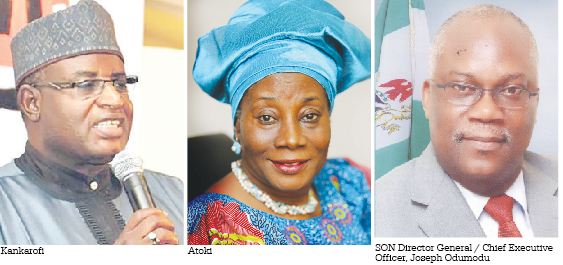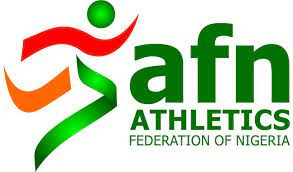Government agencies within integrated marketing communications and consumer related activities are at loggerheads over regulation. Senior Correspondent GODDIE OFOSE reports on this situation, which hampers growth, and what stakeholders see as the way forward.

Government agencies that are supposed to regulate integrated marketing communication (IMC) and protect consumers include the Standard Organisation of Nigeria (SON), National Agency for Food and Drug Administration and Control (NAFDAC), and Consumer Protection Council (CPC).
They also include the Advertising Practitioners Council of Nigeria (APCON), Nigerian Communication Commission (NCC), National Institute of Marketing of Nigeria (NIMN), National Lottery Regulatory Commission (NLRC), and Nigerian Institute of Public Relations (NIPR).
Overlapping responsibilities in these agencies generate friction which slows down the pace of achievement in the industry.
Oronsaye report
The Stephen Oronsaye Committee recommended in its 800-page report the scrapping of 102 agencies from the current 263, abolition of 38 agencies, merger of 52, and reversal of 14 to departments in ministries.
It also recommended the stoppage of government funding of professional bodies and councils.
The high cost of servicing the public sector has an adverse effect on economic growth. As former Central Bank (CBN) Governor, Lamido Sanusi, rightly pointed out, the civil service is over staffed.
There are 45,000 ghost workers in 251 ministries, departments and agencies (MDAs). The civil service has contributed hugely to the cronyism and corruption rampant in the country.
Recommendations and solutions to the myriad of national problems have never been in short supply; the bane is the lack of political will to implement them.
In 1975, the federal government restructured its civil service in a massive purge.
Recently, the overlapping functions and battle for supremacy among government agencies was highlighted by the police shooting of two officials of the Nigeria Security and Civil Defence Corps (NSCDC), which ignited a war of words.
It took the intervention of former President Goodluck Jonathan to bring the situation under control.
The two paramilitary outfits have been embroiled in mutual mistrust over what police officers allege as intrusion into their functions by the NSCDC.
“It is a fundamental breach of good public sector governance to create a new agency or institution as a result of the failure or poor performance of an existing agency in order to suit political or individual interests.
“That such practices have been precipitating systemic conflicts, crises and collapse at a substantial but avoidably high cost to the government cannot be contested,” the Oronsaye report said.
Overlapping functions
Experts criticise the duplication of functions, seeing it as unnecessary, especially in the regulation of consumer goods and services.
The CPC and NLRC regulate consumer promotion. Conflict ensue when the CPC, SON, APCON, and NAFDAC seize substandard products.
CPC Director General, Dupe Atoki, confirmed that “sometimes some of these mandates have some similarity with some agencies and that is where there are some collisions and there is a fight for stuff.
“I have decided that I didn’t come to the government to fight anyone, we just negotiate and agree on how we want to collaborate to get the best interest for the consumers. We are entitled to go to market places and remove products.
“We know there are other agencies who have that power as well and have been able to develop mutual relationship with those organisations to say let’s just work together.”
Functions of NAFDAC
NAFDAC is empowered by law to, among others
• Regulate and control the importation, exportation, manufacture, advertisement, distribution, sale and use of drugs, cosmetics, medical devices, bottled water, and chemicals.
• Conduct tests and ensure compliance with standard specifications designated and approved by the council for the effective control of quality of food, drugs, cosmetics, medical devices, bottled water, and chemicals.
• Investigate the production premises and raw materials for food, drugs, cosmetics, medical devices, bottled water, and chemicals, and establish a quality assurance system, including certification of production sites and products.
• Inspect imported foods, drugs, cosmetics, medical devices, bottled water, and chemicals, and establish a quality assurance system, including certification of production sites and products.
• Compile standard specifications, regulations, and guidelines for the production, importation, exportation, sale and distribution of food, drugs, cosmetics, medical devices, bottled water, and chemicals.
• Register food, drugs, medical devices, bottled water, and chemicals.
• Control the exportation and issue quality certification of food, drugs, medical devices, bottled water, and chemicals.
• Establish and maintain laboratories or other institutions in strategic areas of Nigeria necessary for the performance of its functions.
NAFDAC envisions that its actions will be apparent “in all sectors that deal with food, cosmetics, medical devices, bottled water, and chemicals to the extent of instilling extra need for caution and compulsion to respect and obey existing regulations both for healthy, living and knowledge of certain sanctions or default.”
Despite its establishment, however, the sale and use of fake drugs continue.
NLRC
Section 57 of the NLRC Act lists “lottery” to include any game, scheme, agreement, system, plan, promotional competition or device for the distribution of prizes by lot or chance, or as a result of the exercise of skill and chance or based on the outcome or sporting events, or any other game, scheme, agreement, system, plan, competition or device, which the president may by notice in the gazette declare to be lottery and which shall be operated according to a licence.
Functions of SON
SON, (called Nigeria Standards Organisation, NSO, when it was established in 1971), is vested with the responsibility to standardise and regulate the quality of all products in the country. The Act creating the body was amended in 1976.
The original Act empowered SON to specify and elaborate standards as well as provide quality assurance systems for commodities, including manufactured, industrial and imported products and services.
But the 1976 amendment conferred on the minister of industry the power to declare mandatory industrial standards in respect of products or processes recommended by the Nigerian Standards Council (NSC).
The 1984 amendment to the Act changed the name from NSO to SON because the initial acronym (NSO) was confused with a newly-established Nigerian Security Organisation.
Another amendment to the Act in 1990 conferred partial autonomy on SON from the Ministry of Industry, now Ministry of Trade and Investment. The amendment was a turning point for SON’s corporate image, with its head designated director general.
The amendment empowered SON to seize, confiscate, and destroy substandard products, including authority to seal up premises, where defective products are manufactured or stored.
Implementation of severe penalties on offending manufacturers, importers and sellers of substandard products are also provided for in the amended Act.
Besides, SON has mandate to, among others
• Investigate the quality of facilities, materials, and products, and establish a quality assurance system, including certification of factories, products, and laboratories.
• Ensure reference standards for calibration and verification of measures and measuring instruments.
• Compile an inventory of products requiring standardisation, and foster interest in the recommendation and maintenance of acceptable standards by industry and the general public.
• Develop methods for testing materials, supplies and equipment, including items purchased for use by state and federal departments and private establishments.
• Register and regulate standard marks and specifications.
• Prepare and distribute standard samples.
• Establish and maintain laboratories or other institutions, as may be necessary for the performance of its functions.
The highest decision-making body of SON is the NSC, which advises the government on standard specifications, quality control, and methodology.
The NSC also determines the financial, operational and administrative policy of SON, as well the appointments, remuneration, and other conditions of service of its personnel.
Functions of CPC
The CPC was established to promote and protect consumers’ interest in products and services, provide speedy redress to complaints, inform, educate, and empower them to act as discerning consumers in the market place.
It has a council at the federal level and a committee in each state.
The CPC provides redress to consumer complaints through negotiation, mediation and conciliation. It has the power to apply to court to prevent the circulation of any product which constitutes an imminent public hazard.
It supervises the activities of state committees.
Although the CPC Act came into force in 1992, the provision relating to state committees was not implemented until 2000/2001 when the first two state committees were inaugurated.
After a pause, the CPC resumed the exercise in 2005 and has since established additional committees in more states.
State committees receive inquiries into the causes and circumstances of injuries, loss or damage suffered or caused by a company, trade, association or individual and, where appropriate, recommend to the council the payment of compensation by the offending person to the injured consumer.
State committees adopt negotiation, mediation, and conciliation. Each comprises representatives of designated ministries and agencies.
The committees are non-judicial alternative compensation schemes.
Effect of rivalry
CPC officials once engaged their counterparts in NAFDAC and SON over functions.
“We are working in collaboration with other agencies but in the area of approving commercials, particularly in consumables, there is always a little friction between us and NAFDAC, and we have strengthened that now,” said APCON Chief Executive Officer, Garba Kankarofi.
But Atoki insisted that CPC officials “are entitled to go to market places, remove products. We know there are other agencies who have that power as well and have been able to develop mutual relationship with those organisations.
“The market is so huge and you can’t do it alone, we can only benefit if we put our heads together. In addition to that we are empowered to educate consumers
“I think this is where I believe we have failed consumers over the years because we have not been able to sensitise them on what their rights are.
“I believe Nigerians know how to fight for their rights if they know it but if they don’t know then they remain in ignorance and they will not be able to fight.”
Advocacy for agency strengthening
Some stakeholders advised the government not to proceed with the proposed merger since it is evident the agencies have different scopes of responsibility.
Others said SON has failed to check the importation of substandard goods but that it can perform well if fully equipped, staffed, and funded.
Private sector bodies like the Nigeria Association of Chambers of Commerce, Industry, Mines and Agriculture (NACCIMA), Manufacturers Association of Nigeria (MAN), and Nigeria Association of Small and Medium Enterprises (NASME), have also urged the government not to merge these agencies yet.
NACCIMA President, Herbert Ajayi, advocated the full implementation of the SON Act, saying strengthening the body should occupy the mind of the government and not a merger with the CPC.
He said NACCIMA supports SON’s zero tolerance for substandard products.
Consumer Advocacy Forum Nigeria (CAFN) President, Shola Salako, blamed the poor performance of the CPC on the absence of consumer education and a structure for resolving consumer issues.
In her view, the concept of consumerism is almost non-existent.
“We have some semblances of efforts to bring issues up but the bottom line is that the concept of consumerism is not so aligned with governance, so that what we are doing is a far cry from what actually should be,” Salako stressed.
“I am still looking forward to when Nigerians will enjoy legal protection by a law made with them in mind. I am not satisfied with what prevails, we have a consumer law that is vague.
“It was obviously a token attempt at meeting the UN (United Nations) obligation. It wasn’t thorough because we have to make it a structural part of the Nigerian system.
“The laws are not adequate and every attempt to amend them is being stalled by some people in the National Assembly for reasons best known to them.”
Other advocates argued that the proposed consolidation will further weaken SON to performing its role and further crowd out the hardly visible CPC.













